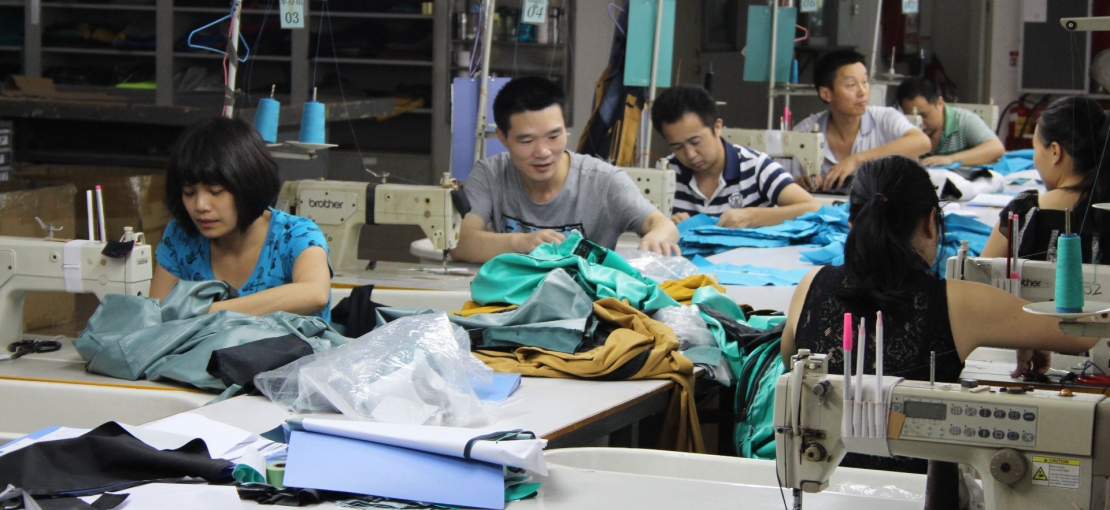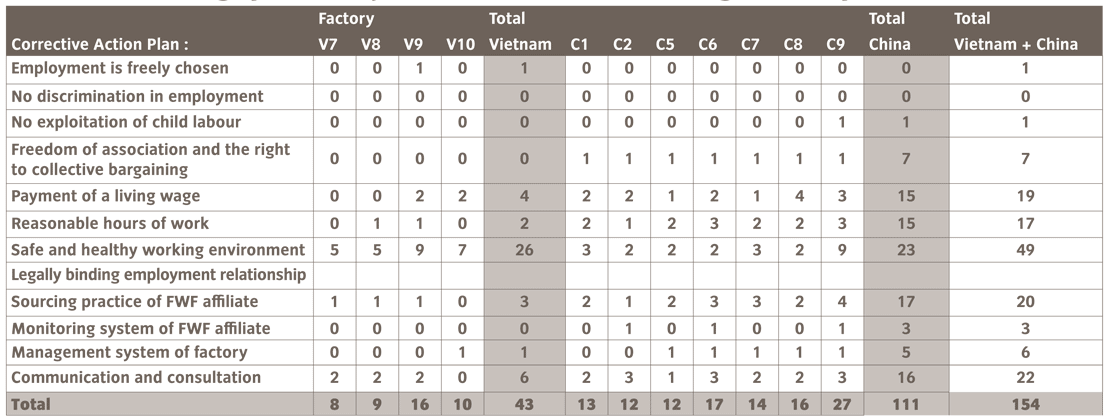
Strict controls in high-risk countries
Nine producers underwent initial audits
We worked with 43 producers in high risk countries in 2013. They make the majority of our products: 94 percent of our total expenditure for products goes to these facilities. The remaining six percent of the total expenditure goes to seven producers in low-risk countries.
The "Fair Wear Foundation" (FWF) distinguishes between low risk countries and high risk countries. Low Risk Countries are the EU Member States except Bulgaria, Romania and Switzerland. In accordance with FWF rules, only high risk countries must be audited, as there is a high risk of complaints with regard to labor practices and human rights there. In the long term, 90 percent of facilities in high risk countries must be audited, according to FWF.
Audits of 19 suppliers since 2010
From all VAUDE suppliers, nine producers from high risk countries were audited for the first time; a re-audit took place at two producers in China. Since 2010, a total of 19 producers have been audited, which together account for 66 percent of our total cost of products. Since the inspection criteria are very strict and extensive, all audits were in high risk countries, with some degree of serious complaints.
Overview of Complaints 2013
| GRI: | LA14 |
| GRI: | LA15 |
| GRI: | HR11 |
| GRI: | EC9 |
Occupational health and safety is the biggest problem
Most complaints were about workplace health and safety, as well as salary and working hours. Complaints related to working practices were present at every facility audited. On the subject of human rights, "freedom of association and the right to collective bargaining" were particularly objected to. All seven audited facilities in China were affected by this, while there were no complaints in the facilities in Vietnam.
Action plan to improve working practices
After each audit, a CAP is created detailing the points and deficiencies to be addressed, and which ones need to be worked on in collaboration with the producers. The implementations of the individual points from the CAP are reviewed regularly with the help of our local VAUDE quality control team leader on site. In cases where difficulties in implementation are encountered, solutions are sought with the producers during meetings that take place annually.
Separation as the final step
This is sometimes a difficult process. But before we part from a producer, we try very hard to improve our collaboration. This includes reliability, price policy and communication, as well as quality, environmental protection and social standards.
Only when we realize that our efforts to find a solution are failing, do we end the business relationship. In 2013, we ended our relationship with two producers due to poor working conditions and the negative attitude of the management.
Seven local suppliers
In addition, we have worked during the year with seven producers in low-risk countries, which accounted for six percent of the total spending for our products. Four percent is made solely by the production at VAUDE location Tettnang-Obereisenbach.
Producers in low-risk countries have not been audited because there is little risk of adverse effects in these countries. In an industry-wide comparison, these producers are relatively close to our main business site in Tettnang-Obereisenbach and are therefore referred to as a local supplier.





